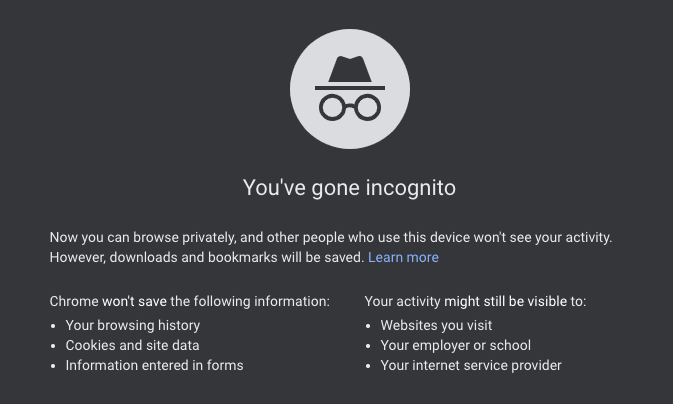- Google’s incognito mode is a browser setting that lets users presumably surf the web privately, without leaving identifying information about themselves behind as they do so — at least, that’s what the average person might think.
- A new class-action lawsuit, however, has just been filed claiming that, in fact, the complete opposite is the case and that Google’s behavior is more akin to illegal wiretapping.
- A Google spokesman has said the company will vigorously defend itself against the claims.
All those times you open a new Google Chrome window and try to browse the Internet in so-called “incognito mode” may not be as incognito as you think — in fact, according to a proposed class-action lawsuit filed against Google on Tuesday, the company is actually snooping on users’ activity while this setting is engaged.
The lawsuit — filed in federal court in San Jose, California — accuses Google parent company Alphabet Inc. of quietly amassing data about what people do online and what sites they visit while in the private browser mode, per Reuters. From the text of the lawsuit: “Google promises consumers that they can ‘browse the web privately’ and stay in ‘control of what information [users] share with Google.’ To prevent information from being shared with Google, Google recommends that its consumers need only launch a browser such as Google Chrome, Safari, Microsoft Edge, or Firefox in ‘private browsing mode.’ Both statements are untrue.”
In fact, the language in the suit continues, when users take either or both of those steps, the company “continues to track, collect, and identify their browsing data in real-time, in contravention of federal and state laws on wiretapping and in violation of consumers’ rights to privacy.”
The size of the proposed class of plaintiffs this action could include numbers in the “millions,” according to the suit, which also seeks at least $5,000 in damages per user for violations of California privacy laws as well as federal wiretapping statutes.
In response to the lawsuit, Google spokesman Jose Castaneda said the company plans to vigorously defend itself against the accusations made here. He also pointed to the following disclosure made each time you open a new incognito tab. Here’s what you see when you do:

Note that second column of bullet points, which explains that even in incognito mode, “Your activity might still be visible to websites you visit, your employer or school, (and) your internet service provider.”
“Incognito mode in Chrome gives you the choice to browse the internet without your activity being saved to your browser or device,” Castaneda said, according to The New York Times.
On a related note, Google has made some big changes to incognito mode browsing over the past year, including the closure of a loophole that allowed websites to detect incognito browsing sessions. News publishers have responded to this move, which would otherwise allow people even greater freedom to use incognito sessions to do an end-run around paywalls, by increasingly requiring users to sign-up and log-in as a registered user if you want to view the publishers’ content at all.








